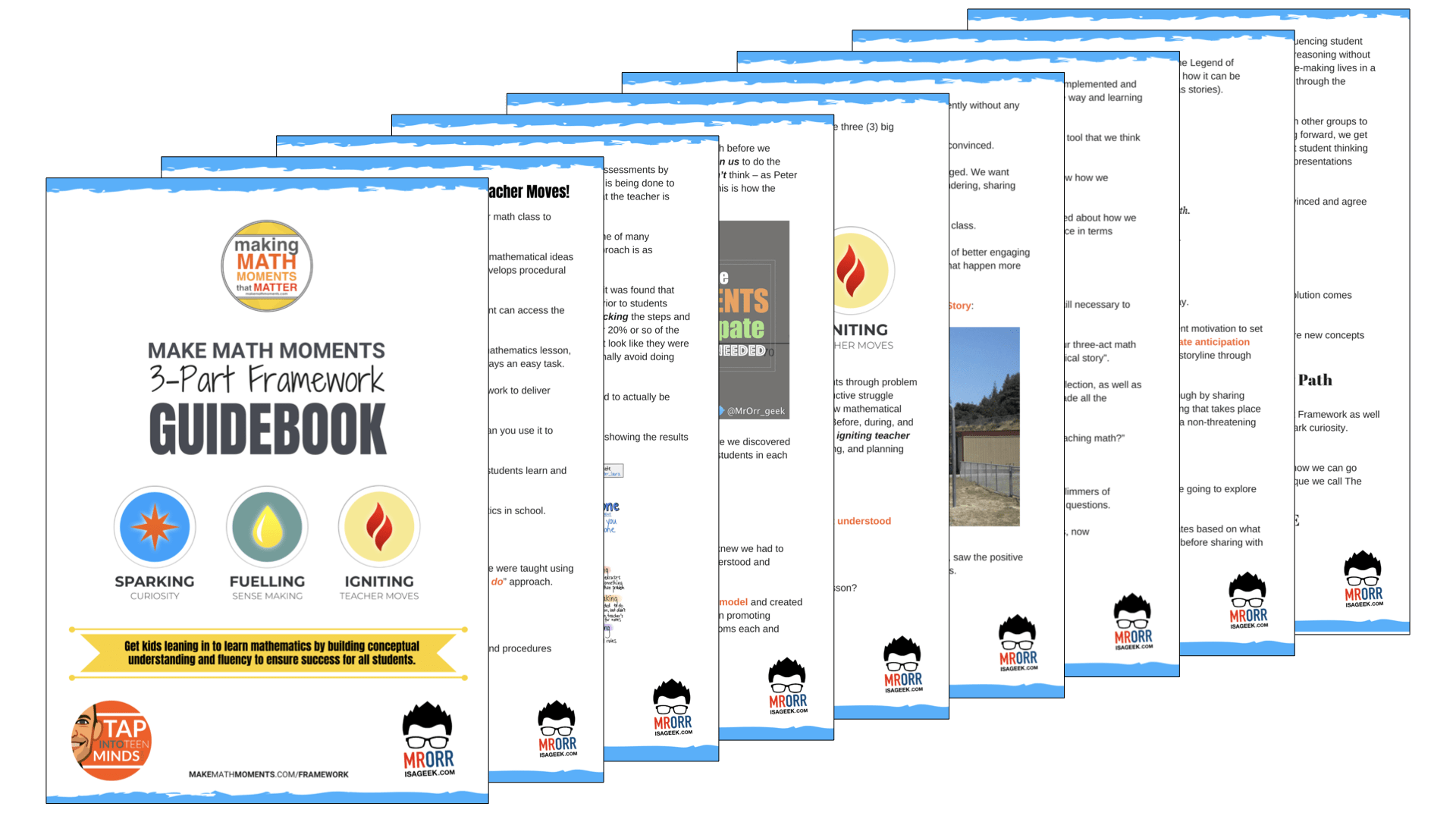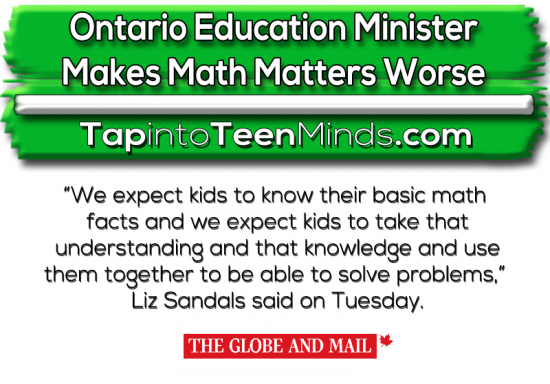A couple days ago, I received a tweet from a good colleague and friend, @cowpernicus about comments made by Ontario Education Minister, Liz Sandals:
@MathletePearce Ontario Ed Minister wants basics: ‘Learn your multiplication tables’ http://t.co/18hfd8DPRV "a great homework assignment."
— James Cowper (@Cowpernicus) April 5, 2014
In the Globe and Mail Article, Ontario Education Minister wants the basics, Liz Sandal’s states:
We expect kids to know their basic math facts and we expect kids to take that understanding and that knowledge and use them together to be able to solve problems … That’s actually a great homework assignment: Learn your multiplication tables.
Liz Sandals, Ontario Minister of Education
Ontario Education Minister wants the basics – The Globe and Mail
It seems that the never ending battle between discovery learning and traditional methods used to teach mathematics will get more complex in the media as the Ontario Minister of Education now pours fuel on the fire by suggesting Ontario students need to learn their math facts.
Inquiry-based vs. traditional… why not the best of both worlds?
I understand that the media needs to build hype into every story and this one is no different. Every news story related to the Great Math Debate suggests that you must be on one side or the other. Maybe the real problem is that some teachers may actually believe that you can only teach one way. Furthermore, at what point did integrating some inquiry-based math lessons when introducing new concepts suggest that students were not allowed to learn their multiplication tables or math facts?
The “silver bullet” can’t be found here
If you believe that teaching one way or the other will change the problems in mathematics education, you are wrong.
The suggestion that learning the “traditional” way would help improve test scores, then I’d first like to ask you why so many people ages 25+ hate math? How many of these same people would be able to solve a simple first-degree equation (grade 9 applied expectation) or the mode of a set of numbers (grade 3 expectation). Aren’t you excited to go back to the way it was when teaching math “worked?”
Assuming that inquiry-based learning is the only way to go is also ridiculous. Some of the most effective teacher-influenced instructional strategies included in John Hattie’s research would suggest that “discovering” concepts isn’t always the best way to go. Scaffolding, reciprocal teaching, and direct instruction all prove to be effective. However, his research also shows that even more important would be providing descriptive feedback, teacher clarity, and student-teacher relationships.
If we really want to move mathematics education forward, we need to look beyond the labels of traditional vs. discovery.
Comments by Liz Sandals hurt public confidence in education
When our Education Minister claims that “we expect kids to know their basic math facts and we expect kids to take that understanding and that knowledge and use them together to be able to solve problems,” she is hurting public confidence by suggesting that what educators are trying to do isn’t working or is wrong. These comments also imply that students should be able to use these math facts to solve bigger problems. What she doesn’t comment on is how she expects teachers to go about helping students get there.
Why were these comments made? To help solve the problem or simply hurt teacher morale?
What it sounds like to me
If you want students to know their math facts and apply them to problems, it sounds like the Minister of Education wants a bit of both; traditional to get the basics and inquiry to understand why it works.
Would love to hear your perspective. Do comments like this motivate you or simply leave you scratching your head?
WANT TO LEARN HOW TO TEACH THROUGH TASK?

Share With Your Learning Community:

About Kyle Pearce
I’m Kyle Pearce and I am a former high school math teacher. I’m now the K-12 Mathematics Consultant with the Greater Essex County District School Board, where I uncover creative ways to spark curiosity and fuel sense making in mathematics. Read more.
Read More From The Blog

